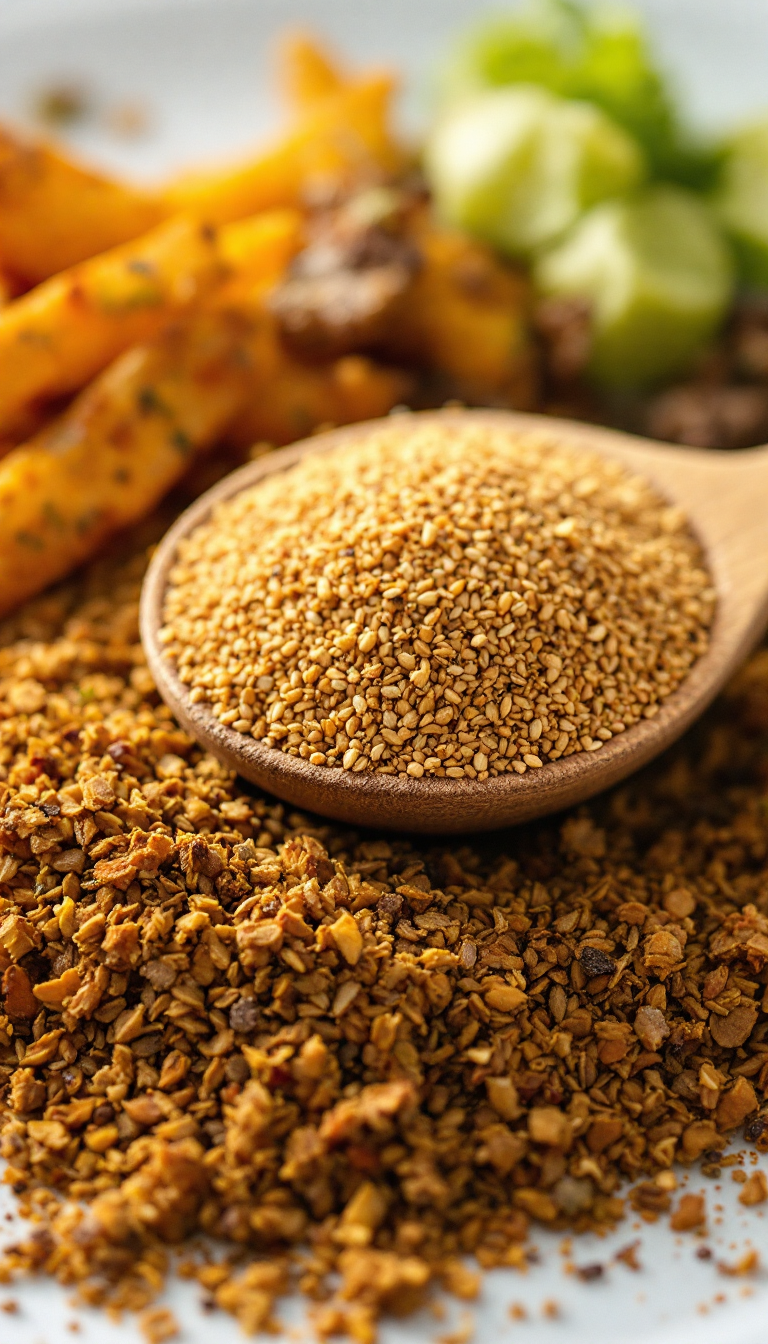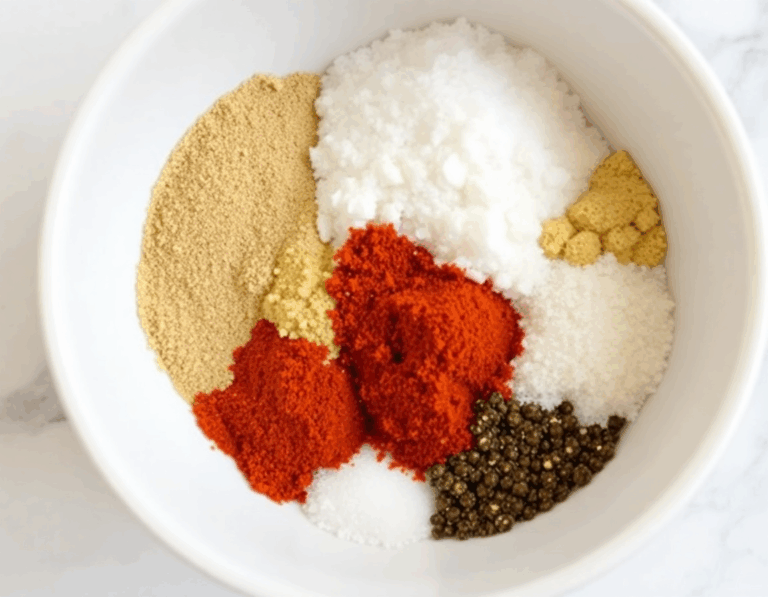
Spice up your kitchen adventures with this homemade jerk seasoning—it’s like a tropical vacation for your taste buds! I remember the first time I tried jerk chicken on a street corner in Kingston—my mouth was on fire, but I couldn’t stop eating it. This recipe captures that fiery, irresistible flavor, perfect for those moments when you’re craving something bold and unforgettable.
Steps
- Gather all the necessary ingredients, including onion powder, garlic powder, cayenne pepper, salt, and ground black pepper, among others, and place them in a small mixing bowl.
- Stir the ingredients together thoroughly until they are uniformly mixed, ensuring a consistent blend of spices.
- Transfer the mixed seasoning into an airtight container for storage, keeping it fresh and ready for use as needed.

Ingredients
- 1 tablespoon onion powder
- 1 tablespoon garlic powder
- 2 teaspoons cayenne pepper
- 2 teaspoons salt
- 2 teaspoons ground black pepper
- 2 teaspoons dried thyme (or 1 teaspoon ground thyme)
- 2 teaspoons sugar (or brown sugar)
- 1 teaspoon ground allspice
- 1 teaspoon dried parsley
- 1 teaspoon paprika
- 1/2 teaspoon hot pepper flakes
- 1/2 teaspoon ground cinnamon
- 1/2 teaspoon ground nutmeg
- 1/2 teaspoon ground clove
- 1/4 teaspoon ground cumin
Nutritional Values
Calories: 22kcal | Carbohydrates: 5g | Sodium: 778mg | Potassium: 57mg | Fiber: 1g | Sugar: 1g | Vitamin A: 455IU | Vitamin C: 1mg | Calcium: 16mg | Iron: 0.7mg
FAQ
- What is the origin of Jamaican jerk seasoning?
- Jamaican jerk seasoning originated in Jamaica and is associated with a traditional cooking style known as “jerking,” which involves poking holes into meat to enhance flavor absorption. The term “jerk” now broadly refers to the spice blend, marinade, and cooking technique.
- Can I customize the ingredients in my homemade jerk seasoning?
- Absolutely! One of the benefits of making jerk seasoning at home is the ability to tailor the blend to your taste. You can adjust the proportions of spices, such as reducing clove or increasing allspice, and even add extra heat with chili powders like ghost pepper or scotch bonnet.
- What are some alternative uses for jerk seasoning beyond chicken?
- While jerk seasoning is traditionally used with chicken, it is versatile and can enhance various proteins, including shrimp, tofu, and other seafood. It also pairs well with vegetables, such as grilled corn on the cob.
- Is there a substitute for Jamaican jerk seasoning if I can’t find it?
- There is no perfect substitute for authentic jerk seasoning, but if you’re unable to find it, you can try making your own using the provided recipe. Alternatively, you might start with a Cajun or Creole seasoning blend and add ingredients like brown sugar, nutmeg, cinnamon, clove, and allspice to get closer to the jerk flavor profile.
- How should I store homemade jerk seasoning?
- To maintain the freshness of your homemade jerk seasoning, store it in an airtight container. This will help preserve the aromatic spices and ensure the blend remains potent for future use.
Tips
- Adjust Spice Levels to Your Preference: Feel free to modify the proportions of the spices to suit your taste. Add more cayenne or include a pinch of ghost pepper powder for extra heat, or reduce the clove for a milder blend.
- Experiment with Different Proteins and Vegetables: This versatile seasoning works well not only on chicken but also on seafood, tofu, and vegetables. Try it on grilled corn or shrimp for a delightful twist.
- Dehydrate and Grind Your Own Peppers: For an authentic touch, dehydrate scotch bonnet peppers and grind them into powder to add to your seasoning mix. This can enhance the flavor profile significantly.
- Store Properly for Longevity: Once mixed, store your homemade jerk seasoning in an airtight container to keep it fresh and aromatic for future use.
Equipment
- Airtight container – For storing the spice blend to maintain freshness.
- Spice grinder or mortar and pestle – If you prefer to grind whole spices like thyme or allspice for a fresher taste.
- Dehydrator – If you want to dehydrate your own peppers, such as scotch bonnet, for making your own pepper powders.
